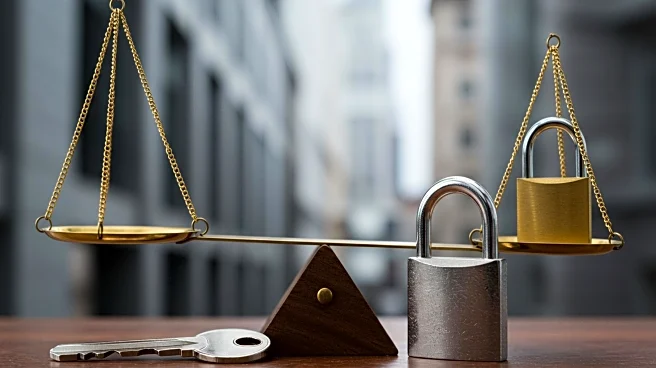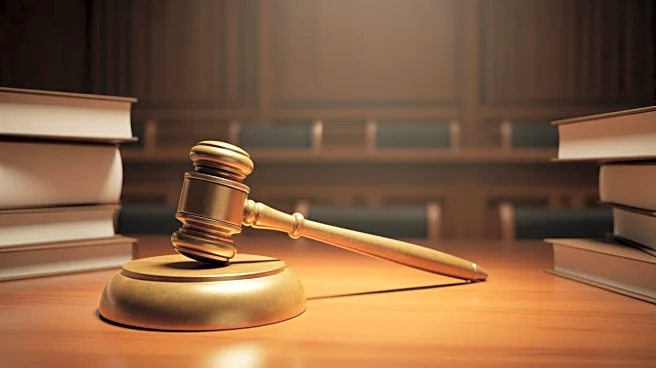What is the story about?
What's Happening?
Washington DC has filed a lawsuit against the federal government following the appointment of the Drug Enforcement Administration (DEA) head as the district's 'emergency police commissioner' by US Attorney General Pam Bondi. The city's attorney general, Brian Schwalb, claims the federal government has unlawfully taken over the Metropolitan Police Department (MPD) and is misusing its authority. The lawsuit seeks to nullify Bondi's order and prevent the DEA head from assuming command within the MPD. President Trump has deployed federal law enforcement to address crime in Washington, citing the Home Rule Act, which allows federal use of MPD for necessary purposes. The Justice Department has not commented on the lawsuit, and a hearing is scheduled before Judge Ana Reyes.
Why It's Important?
The lawsuit underscores tensions between local and federal authorities regarding law enforcement jurisdiction. The federal takeover of the MPD raises concerns about the balance of power and the potential impact on public safety and local governance. Mayor Muriel Bowser and other officials argue that the move is an 'authoritarian push' and could disrupt the command structure of the MPD, posing risks to public and officer safety. The deployment of federal agents and National Guard members in Washington DC highlights the broader implications for civil liberties and the precedent it sets for federal intervention in local matters.
What's Next?
A hearing is set to take place, which will determine the legality of the federal government's actions. The outcome could influence future interactions between federal and local authorities, particularly in matters of law enforcement. Stakeholders, including local government officials and civil rights groups, are likely to continue voicing opposition to the federal intervention, potentially leading to further legal challenges or political actions.
Beyond the Headlines
The situation raises ethical and legal questions about federal authority and its limits. It could lead to long-term shifts in how local and federal law enforcement agencies collaborate, especially in politically sensitive areas. The case may also influence public perception of federal power and its role in local governance.














